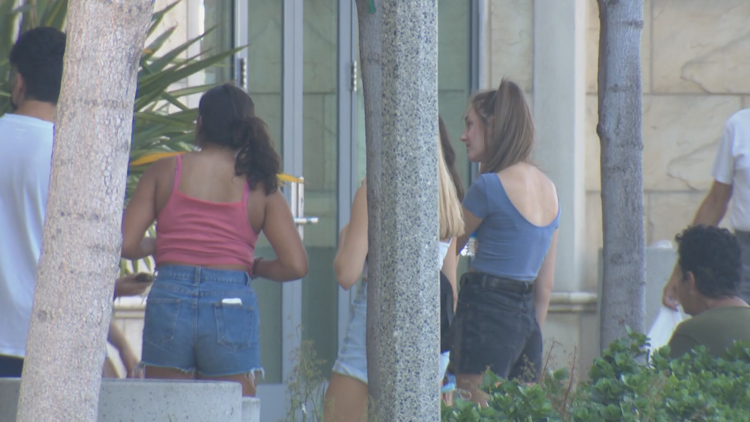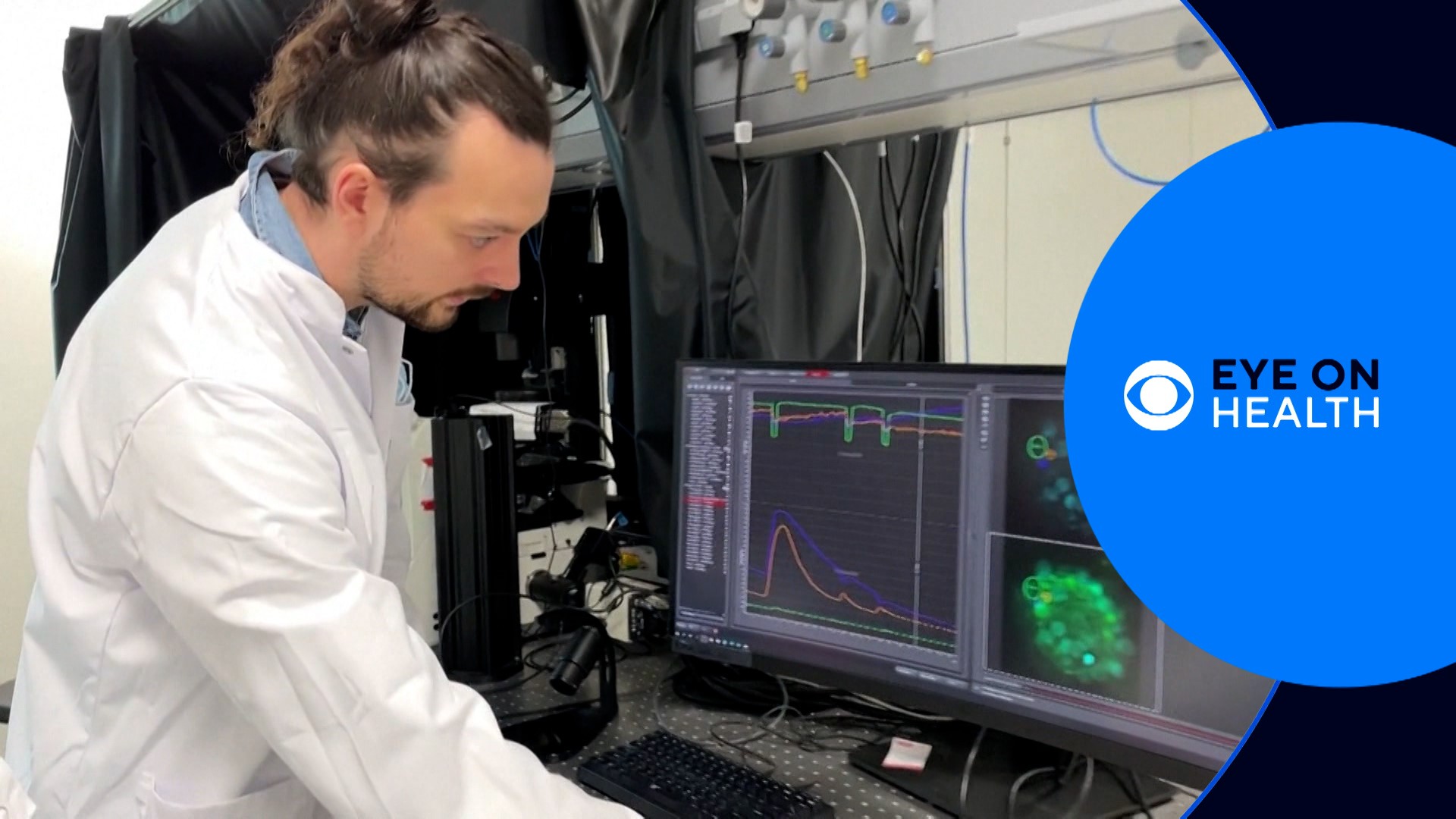SAN DIEGO — On Aug. 18, San Diego State welcomed back 2,600 students to its campus. That same week, the largest fraternity system at SDSU put themselves on a social gathering “ban” after a student tested positive for coronavirus upon move-in.
Several days later, as the sun went down, the streets were packed. Complaints came into News 8 about parties of 50 or more people. News 8 crews also witnessed a house party in the area.
Despite numerous suggestions and safety guidelines issued by SDSU to its community, the parties were evident.
Nationwide, we see that parties contribute to the growing outbreaks and clusters seen at campuses like the University of North Carolina at Chapel Hill and Syracuse University who have documented multiple clusters of the virus within their residence halls.
Though SDSU reported just 25 cases of coronavirus since the start of the pandemic, universities nationwide have reported many more -- cluster upon cluster of the virus. Some, like the University of Texas at Austin, are reporting hundreds of cases.
An infectious disease professor in San Diego told News 8 that this problem should be in the minds of all institutions bringing students back to campus.
Dr. Rebecca Fielding-Miller, an assistant professor of medicine in the Division of Infectious Disease and Global Public Health at UC San Diego, described the mindset needed going into this school year as proactive and preventative.
“I think every single university in the U.S. needs to be thinking, not if this happens, but when this happens,” Dr. Fielding-Miller said. “It’s probably inevitable on any given university campus… it’s not because students are bad, it’s because everyone’s been stuck at home since March.”
A student who lives near campus, who wished to remain anonymous, said they witnessed crowds of students walking near campus.
“I see people in the middle of the night walking to and from parties all the time, in big groups, not anyone wearing a mask,” the student said.
The student, just like Dr. Fielding-Miller, said that universities must prepare for outbreaks on their campuses.
“My biggest fear is that things will start popping up and they won’t be contained quick enough,” the student said.
San Diego State offered an extensive list of precautions taken to maximize social distancing and hygiene -- even with 2,600 students now living on campus.
Suite-style living with a mask policy on campus, outdoor workout equipment and nearly all-online classes, space to quarantine students in the event of a case, and accessible COVID-19 testing on-site… the list could go on.
Though SDSU does not require students to be tested for coronavirus before moving in, the university says these measures taken will maximize the efforts to mitigate virus exposure.
San Diego State University officials were not immediately available for an interview but provided a statement regarding disciplinary action for health violations on or near campus.
The statement read, in part:
"For any off-campus gathering, both organizational violations as well as individual violations will be issued. The university takes any violation extremely seriously. Consequences range from an official warning to expulsion. The university asks that any community member who becomes aware of a potential violation among students report the situation using the COVID-19 Incident Reporting Form.
For those living on-campus, the university has put into place an extensive range of proactive measures. If violated, these are also subject to student disciplinary action, as noted above.
Additionally, the Office of Student Life & Leadership is addressing off-campus gatherings reported to the university. While this is an ongoing process, the office has connected with student leaders to address behavioral concerns."
Dr. Fielding-Miller said bringing students from across the nation is also a risk factor.
“It’s not just about creating more connections among people who were already here,” Dr. Fielding-Miller said. “It’s about people from areas that were maybe higher risk than San Diego County or the state of California coming and potentially driving those numbers up.”
Not only can an aggregate of students from a variety of different places bring high risk to San Diego State, but a large gathering such as a party can also harbor what Dr. Fielding-Miller called a "superspreader event."
The Center for Disease Control describes a superspreader event as a culmination of crowds in an indoor setting, along with people who can emit the virus at a high rate, like symptomatic individuals.
Dr. Fielding-Miller said a party can be the habitat for a superspreader event.
“A lot of people in a small confined space with raised voices is probably a recipe for at least one outbreak, if not more,” Dr. Fielding-Miller said.
San Diego State is not currently facing a superspreader event, but if one were to happen and cause a cluster of cases, this could fracture the intricate structure of online classes that keep the student-teacher relationship alive.
Roman Koenig is a professor of digital journalism at SDSU. He taught online courses for several years before the pandemic and said that a coronavirus case in an online class could throw off the entire semester for a student.
“One thing I learned about teaching online is that you, a student, can fall behind very rapidly and the missed work piles up really fast,” Koenig said.
Koenig said when he read the reports of students partying near SDSU he told himself, “Oh god… here we go.”
"We’re in somewhat of a dream world… where we think we can have students and faculty congregating on campus,” Koenig said. “I understand that, but it seems like every time we attempt that, it results in clusters of cases.”
For now, SDSU hasn't reported a spike in cases, but that doesn’t mean the ongoing parties near the campus won’t increase the risk.
The student who wished to remain anonymous said he remains optimistic that the SDSU community will work hard to prevent a cluster, but wishes his peers would protect themselves, and if they must be social, to do it responsibly.
“Make the little choices that can make the difference by wearing a mask or staying outside if you can," the student said.
Dr. Fielding-Miller said disciplinary action toward health violations won’t work as well as compassion. She said the way to approach health regulations among college students is to not ban it, but educate against it.
“Abstinence education doesn’t work great,” Dr. Fielding-Miller said. “It’s how we meet students with compassion and empathy but also being mindful of the responsibility that we have at universities.”



